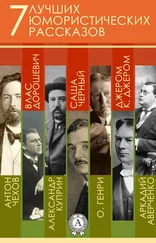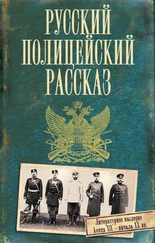
‘At length a perfectly natural thing came about – after we had answered three or four hundred false alarms – to wit, we stopped answering them. Yes, I simply rose up calmly, when slammed across the house by the alarm, calmly inspected the annunciator, took note of the room indicated; and then calmly disconnected that room from the alarm, and went back to bed as if nothing had happened. Moreover, I left that room off permanently, and did not send for the expert. Well, it goes without saying that in the course of time all the rooms were taken off, and the entire machine was out of service.
‘It was at this unprotected time that the heaviest calamity of all happened. The burglars walked in one night and carried off the burglar alarm! yes, sir, every hide and hair of it: ripped it out, tooth and nail; springs, bells, gongs, battery, and all; they took a hundred and fifty miles of copper wire; they just cleaned her out, bag and baggage, and never left us a vestige of her to swear at – swear by, I mean.
‘We had a time of it to get her back; but we accomplished it finally, for money. The alarm firm said that what we needed now was to have her put in right – with their new patent springs in the windows to make false alarms impossible, and their new patent clock attached to take off and put on the alarm morning and night without human assistance. That seemed a good scheme. They promised to have the whole thing finished in ten days. They began work, and we left for the summer. They worked a couple of days; then they left for the summer. After which the burglars moved in, and began their summer vacation. When we returned in the fall, the house was as empty as a beer closet in premises where painters have been at work. We refurnished, and then sent down to hurry up the expert. He came up and finished the job, and said: ‘Now this clock is set to put on the alarm every night at 10, and take it off every morning at 5:45. All you’ve got to do is to wind her up every week, and then leave her alone – she will take care of the alarm herself.’
‘After that we had a most tranquil season during three months. The bill was prodigious, of course, and I had said I would not pay it until the new machinery had proved itself to be flawless. The time stipulated was three months. So I paid the bill, and the very next day the alarm went to buzzing like ten thousand bee swarms at ten o’clock in the morning. I turned the hands around twelve hours, according to instructions, and this took off the alarm; but there was another hitch at night, and I had to set her ahead twelve hours once more to get her to put the alarm on again. That sort of nonsense went on a week or two, then the expert came up and put in a new clock. He came up every three months during the next three years, and put in a new clock. But it was always a failure. His clocks all had the same perverse defect: they would put the alarm on in the daytime, and they would not put it on at night; and if you forced it on yourself, they would take it off again the minute your back was turned.
‘Now there is the history of that burglar alarm – everything just as it happened; nothing extenuated, and naught set down in malice. Yes, sir, – and when I had slept nine years with burglars, and maintained an expensive burglar alarm the whole time, for their protection, not mine, and at my sole cost – for not a d—d cent could I ever get THEM to contribute – I just said to Mrs. McWilliams that I had had enough of that kind of pie; so with her full consent I took the whole thing out and traded it off for a dog, and shot the dog. I don’t know what you think about it, Mr. Twain; but I think those things are made solely in the interest of the burglars. Yes, sir, a burglar alarm combines in its person all that is objectionable about a fire, a riot, and a harem, and at the same time had none of the compensating advantages, of one sort or another, that customarily belong with that combination. Good-bye: I get off here.’
Junoesque– like the Roman goddess Juno (tall and beautiful)
Madame Blavatsky– Helena Blavatsky (1813–1891), a spiritualist and medium, creator of the Theosophical Society (1875) in New York
Sing Sing– a prison (New York State) known for its security and discipline
non compos mentis– not of sound mind ( Latin )
royalty– money paid to an author for each sold copy of his or her book
Brazenose= Brasenose College of the University of Oxford, founded in 1509
cui bono– to whose benefit ( Latin )
was black-balled– not elected, rejected (about a person willing to become a member of a club)
Douglas Jerrold– Douglas William Jerrold (1803–1857), an English dramatist and writer
Marryat– Captain Frederick Marryat (1792–1848), a British Royal Navy officer and novelist, known for his sea stories; developed a system of maritime flag signaling (Marryat’s Code).
Davy Crockett– David Stern Crockett (1786–1836), American folk hero, frontiersman, soldier, and politician. ‘King of the Wild Frontier,’ he gained a reputation for hunting and storytelling.
old Doctor Johnson– Samuel Johnson (1709–1784), an English writer, poet, essayist, moralist, literary critic, biographer, editor and lexicographer
Boswell– James Boswell, (1740–1795), a Scottish lawyer, diarist, and author. His surname has become a synonym for a constant companion and observer, who records all his observations.
Gottschalk– Louis Moreau Gottschalk (1829–1869), an American composer and pianist, a virtuoso performer of his own piano pieces
Carlyle– Thomas Carlyle (1795–1881), a Scottish philosopher, historian, and satirical writer. In his famous work ‘On Heroes, Hero-Worship, and The Heroic in History’ he explains the key role of the ‘Great Man’ in history.
Froude– James Anthony Froude (1818–1894), an English novelist and one of the best known historians of his time for his ‘History of England’
Ignatius Donnelly– Ignatius Loyola Donnelly (1831–1901), populist writer and amateur scientist, known for his theories, among which was Shakespearean authorship.
Lord Wolseley– Garnet Joseph Wolseley, (1833–1913), an Anglo-Irish officer in the British Army. He served as Commander-in-Chief of the Forces from 1895 to 1900 and gained his reputation for efficiency.
the Iron Duke– Arthur Wellesley, 1st Duke of Wellington (1769–1852), a British soldier and statesman, a hero of the Napoleonic Wars
Catherine– Catherine II, (Catherine the Great, 1729–1796), the longest-ruling female leader of Russia, whose reign was believed to be Russia’s golden age
Marie Louise(1791–1847) – the second wife of Napoleon Bonaparte, the Empress of France (1810–1814), later the Duchess of Parma (since 1814)
Josephine– Joséphine de Beauharnais (1763–1814), the first wife of Napoleon I, and the Empress of France (since 1804)
Queen Elizabeth– Elizabeth I (1533–1603), daughter of Henry VIII, queen of England and Ireland (1558–1603). The so-called Virgin Queen, she never married.
Queen Anne(1665–1714 ) – the last of the Stuart monarchs, and the first sovereign of Great Britain
Читать дальше
Конец ознакомительного отрывка
Купить книгу













